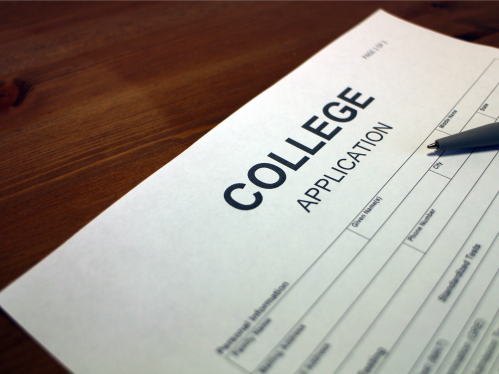First-Year Applicants
Current high school seniors are required to complete the Rutgers Self-Reported Academic Record (SRAR).
Applying to College
Key College Deadlines
Stay on track with essential college deadlines! From applications and financial aid to class registration and housing, meeting each deadline is key to a smooth college experience. Here, you'll find a timeline of important dates to help you stay organized and make the most of your Rutgers journey.
What's in a College Application?
Most college applications will include the following:
Application Forms
Most college applications include personal questions as part of the application process that capture your basic information, academic history, and extracurricular activities.
Application Fees
Although some college applications are free, others can charge up to $100 per application. While fees are nonrefundable, you may request a waiver from your school counselor or principal.
High School Transcript
Your academic record is an essential component of your application. Your transcript shows your grades, the types of courses you have taken, and any honors or achievements. Your high school must send your transcript directly to the colleges you are applying to. Some colleges also require a mid-year transcript with your first-semester grades. You can request to review your transcript before it is sent.


Support Materials
Final Transcript
At the end of your senior year, your high school must send a final transcript to the college of your choice. This transcript will provide the college with your grades during your final year.
Letters of Recommendation
Many schools require letters of recommendation from teachers, counselors, or other mentors who can speak to your abilities and character. Please provide plenty of time (at least 10 school days) so the person completing your recommendation can write and send it before the deadline. A summary of your achievements or student resume can make this process easier for whoever writes your letter.
Essays
Personal statements or admissions essays are your best chance to give the admissions office an idea of who you are beyond your grades. This section should highlight your character and strengths. Essays allow you to tell your story, share your goals, and explain why you’re applying to college. Avoid recycling previously written essays by customizing your essay to the particular school you are applying to. Always proofread your essays.

Scores, Interviews, and Portfolios
SAT/ACT Scores
Although many colleges and universities have made SAT/ACT scores optional, strong scores can help candidates stand out, especially at competitive institutions.
Auditions and Portfolios
If you are interested in a music, art, or theater program, the college may require a sample of your work. Candidates may need to assemble a portfolio of work or audition to showcase their ability.
Interviews
An interview is not always required, but you should always prepare to discuss your interest in a school or program with an admissions representative if given the opportunity.



Required Credentials
Learn what additional credentials are required to apply.
First-Year Applicants
Current high school seniors are required to complete the Rutgers Self-Reported Academic Record (SRAR).
Transfer Applicants
Learn how to get started with your transfer application.
International Applicants
Learn what is required in addition to the undergraduate admissions application for international students.
Part-Time & Non-Degree Applicants
Find flexibility at Rutgers.
Simplify Your College Application Process with the Right Platform
The Common App is the most popular choice for college applications, offering a single application to over 1,000 institutions, including Rutgers University. It streamlines the process with sections for essays, recommendations, and activities and is widely accepted.

Track Your Application
Stay up to date with your application and/or any required documents by checking out your Rutgers Portal.

See Yourself at Rutgers
Campus tours and school visits are invaluable for First-Generation students applying to college. These provide a firsthand look at campus life, academics, and resources like First-Gen support programs. Walking the campus helps you envision yourself there, meet current students, and ask questions about housing, financial aid, and student organizations. Visits also show colleges your genuine interest, which can strengthen your application. Experience the environment and make an informed decision about your future! Experience Rutgers for yourself.
